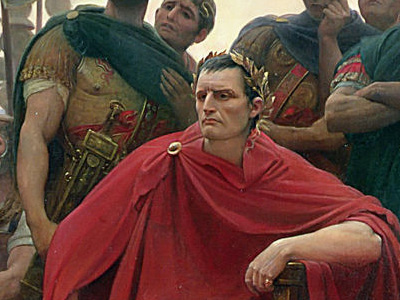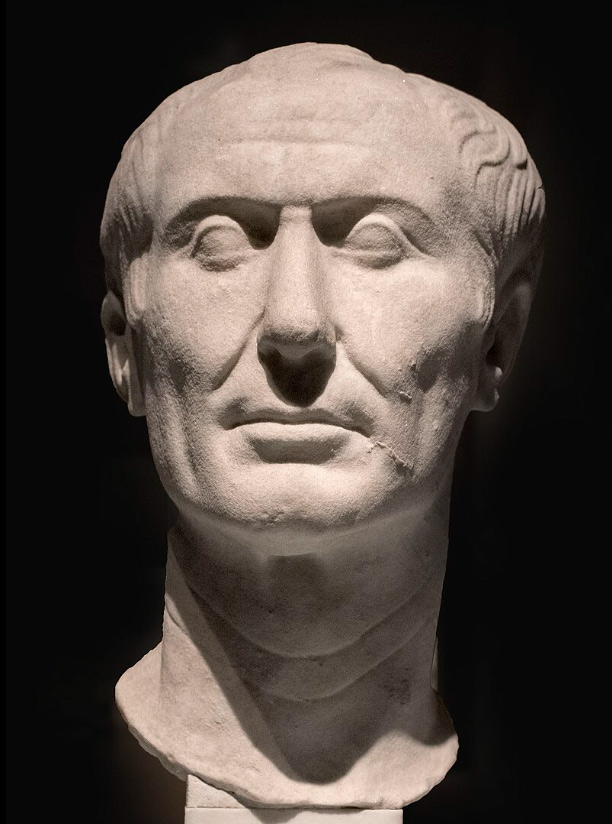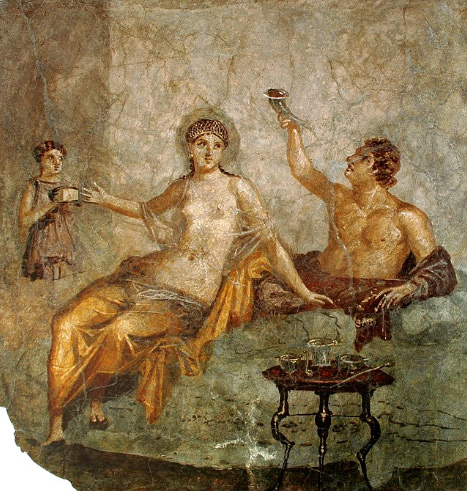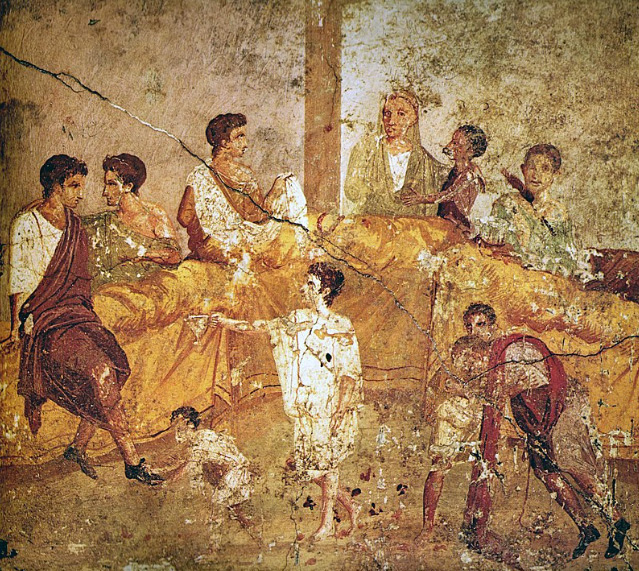Julius Caesar (100-44 BC)
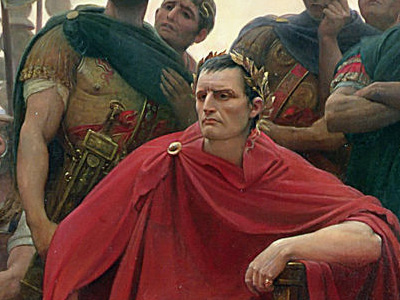
Civil War
In 50 BC, the Senate (led by Pompey) ordered Caesar to disband his army and return to Rome because his term as governor had finished. Caesar thought he would be prosecuted if he entered Rome without the immunity enjoyed by a magistrate. Pompey accused Caesar of insubordination and treason. On January 10, 49 BC, Caesar crossed the Rubicon river (the frontier boundary of Italy) with only a single legion, the Legio XIII Gemina, and ignited civil war. Upon crossing the Rubicon, Caesar, according to Plutarch and Suetonius, is supposed to have quoted the Athenian playwright Menander, in Greek, "the die is cast". Erasmus, however, notes that the more accurate Latin translation of the Greek imperative mood would be "alea iacta esto", let the die be cast. Pompey and many of the Senate fled to the south, having little confidence in Pompey's newly raised troops. Pompey, despite greatly outnumbering Caesar, who only had his Thirteenth Legion with him, did not intend to fight. Caesar pursued Pompey, hoping to capture Pompey before his legions could escape.
Pompey managed to escape before Caesar could capture him. Heading for Spain, Caesar left Italy under the control of Mark Antony. After an astonishing 27-day route-march, Caesar defeated Pompey's lieutenants, then returned east, to challenge Pompey in Illyria, where, in July 48 BC in the battle of Dyrrhachium, Caesar barely avoided a catastrophic defeat. In an exceedingly short engagement later that year, he decisively defeated Pompey at Pharsalus, in Greece.
In Rome, Caesar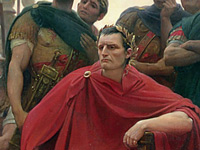 Julius Caesar (100-44 BC), was a Roman politician and general who played a critical role in the events that led to the demise of the Roman Republic and the rise of the Roman Empire. Caesar is considered by many historians to be one of the greatest military commanders in history. Julius Caesar » was appointed dictator, with Mark Antony as his Master of the Horse (second in command); Caesar presided over his own election to a second consulship and then, after 11 days, resigned this dictatorship. Caesar then pursued Pompey to Egypt, arriving soon after the murder of the general. There, Caesar was presented with Pompey's severed head and seal-ring, receiving these with tears. He then had Pompey's assassins put to death.
Julius Caesar (100-44 BC), was a Roman politician and general who played a critical role in the events that led to the demise of the Roman Republic and the rise of the Roman Empire. Caesar is considered by many historians to be one of the greatest military commanders in history. Julius Caesar » was appointed dictator, with Mark Antony as his Master of the Horse (second in command); Caesar presided over his own election to a second consulship and then, after 11 days, resigned this dictatorship. Caesar then pursued Pompey to Egypt, arriving soon after the murder of the general. There, Caesar was presented with Pompey's severed head and seal-ring, receiving these with tears. He then had Pompey's assassins put to death.
Caesar then became involved with an Egyptian civil war between the child pharaoh and his sister, wife, and co-regent queen, Cleopatra. Perhaps as a result of the pharaoh's role in Pompey's murder, Caesar sided with Cleopatra. He withstood the Siege of Alexandria and later he defeated the pharaoh's forces at the Battle of the Nile in 47 BC and installed Cleopatra as ruler. Caesar and Cleopatra celebrated their victory with a triumphal procession on the Nile in the spring of 47 BC. The royal barge was accompanied by 400 additional ships, and Caesar was introduced to the luxurious lifestyle of the Egyptian pharaohs.
Caesar and Cleopatra were not married. Caesar continued his relationship with Cleopatra throughout his last marriage—in Roman eyes, this did not constitute adultery—and probably fathered a son called Caesarion. Cleopatra visited Rome on more than one occasion, residing in Caesar's villa just outside Rome across the Tiber.
Late in 48 BC, Caesar was again appointed dictator, with a term of one year. After spending the first months of 47 BC in Egypt, Caesar went to the Middle East, where he annihilated the king of Pontus; his victory was so swift and complete that he mocked Pompey's previous victories over such poor enemies. On his way to Pontus, Caesar visited Tarsus from 27 to 29 May 47 BC (25–27 Maygreg.), where he met enthusiastic support, but where, according to Cicero, Cassius was planning to kill him at this point. Thence, he proceeded to Africa to deal with the remnants of Pompey's senatorial supporters. He quickly gained a significant victory in 46 BC over Cato, who then committed suicide.
After this victory, he was appointed dictator for 10 years. Pompey's sons escaped to Spain; Caesar gave chase and defeated the last remnants of opposition in the Battle of Munda in March 45 BC. During this time, Caesar was elected to his third and fourth terms as consul in 46 BC and 45 BC (this last time without a colleague).
HISTORY
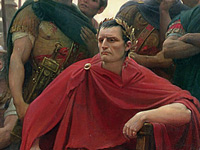
RESOURCES
This article uses material from the Wikipedia article "Julius Caesar", which is released under the Creative Commons Attribution-Share-Alike License 3.0.
© Stories Preschool. All Rights Reserved.
